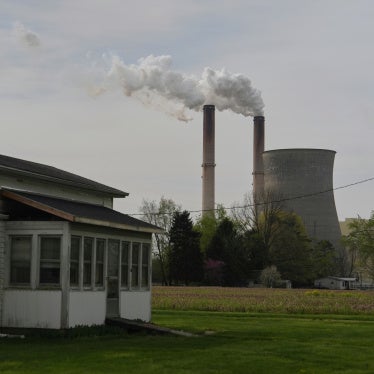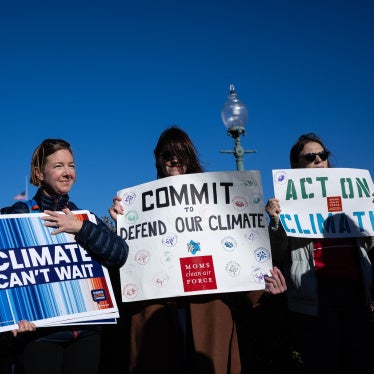Gov. Cuomo has only a few more days to sign a bill to ban chlorpyrifos, a toxic pesticide harmful to public health and the environment. Signing the bill into law is essential for protecting farmworkers’ and children’s rights, health and safety.
As a children’s rights researcher at Human Rights Watch, I’ve interviewed hundreds of child farmworkers in recent years. Under a loophole in federal labor law, it’s legal for children as young as 12 — and sometimes younger — to be hired to work on farms in the U.S. (New York State has the same minimum age requirements but limits 12- and 13-year-olds to hand-harvesting of fruits and vegetables for four hours a day.) Farming can be a dangerous job for anyone, but for children, whose bodies and brains are still developing, it can be especially risky.
One of the biggest risks is exposure to pesticides, which can have serious short- and long-term effects. Public health studies have found that exposure to chlorpyrifos, a pesticide used on a variety of food crops, is linked to autism spectrum disorder, reduced IQ and a range of disabilities in learning, memory, and attention in children. It is also associated with cancer, Parkinson’s disease and other serious health problems.
But despite overwhelming evidence of the harm caused by chlorpyrifos, the Farm Bureau — a group representing agricultural producers — and the chemical industry are pressuring Cuomo to veto the bill and instead regulate the use of chlorpyrifos through the Department of Environmental Conservation. The Farm Bureau has argued that famers use the pesticide “carefully.”
But when we have interviewed child farmworkers, we found that exposure to pesticides is commonplace.
One 14-year-old farmworker in North Carolina told me she was sent to work in a tobacco field that had been sprayed with pesticides just hours earlier. She got a piercing headache, her vision blurred, and she started throwing up. She told me she was sick for two weeks.
Another child worker I interviewed told me his mom, also a farmworker, had to be hospitalized after being sprayed with pesticides while working in the tobacco fields.
The children I met had no idea what chemicals they were exposed to. No one ever gave them that information. But several types of pesticides commonly used in tobacco farming are from the same class of chemicals as chlorpyrifos.
That’s why banning chlorpyrifos is so important.
Human Rights Watch proudly joined more than 80 other organizations working to protect the environment, public health, workers and children that jointly wrote to Cuomo in August urging him to sign the ban.
In July, Cuomo signed a landmark bill guaranteeing farmworkers overtime pay, family leave, the rights to collectively bargain and form unions, and other important protections they do not have under federal law. Banning chlorpyrifos is the next essential step to protect New York’s farmworkers. It is especially important because the Trump administration has diminished public health and science by blocking regulations intended to reduce exposure to toxic materials, including a refusal to ban chlorpyrifos.
A veto on the chlorpyrifos ban would signal that the governor is willing to disregard scientific evidence and sacrifice public health to appease special interests.
Cuomo should look to the overwhelming bipartisan support the bill earned when it passed through New York’s Legislature in April, the leadership shown by New York’s attorney general Letitia James in suing the federal government for its inaction on chlorpyrifos, the efforts by New Yorkers in Congress to pass a national ban on chlorpyrifos, and the resounding calls from the state’s leading health experts and environmental defenders to ban chlorpyrifos.
The support for banning chlorpyrifos is immense. Cuomo should sign the bill without delay.
|
Commentary
Ban this pesticide now, Gov. Cuomo
Published in:
New York Daily News
Your tax deductible gift can help stop human rights violations and save lives around the world.
Region / Country
Most Viewed
-
November 25, 2019
A Dirty Investment

-
June 3, 2025
“They’re Ruining People’s Lives”

-
December 21, 2023
Meta’s Broken Promises

-
January 25, 2024
“We’re Dying Here”

-
February 19, 2018
“All We Want is Equality”




